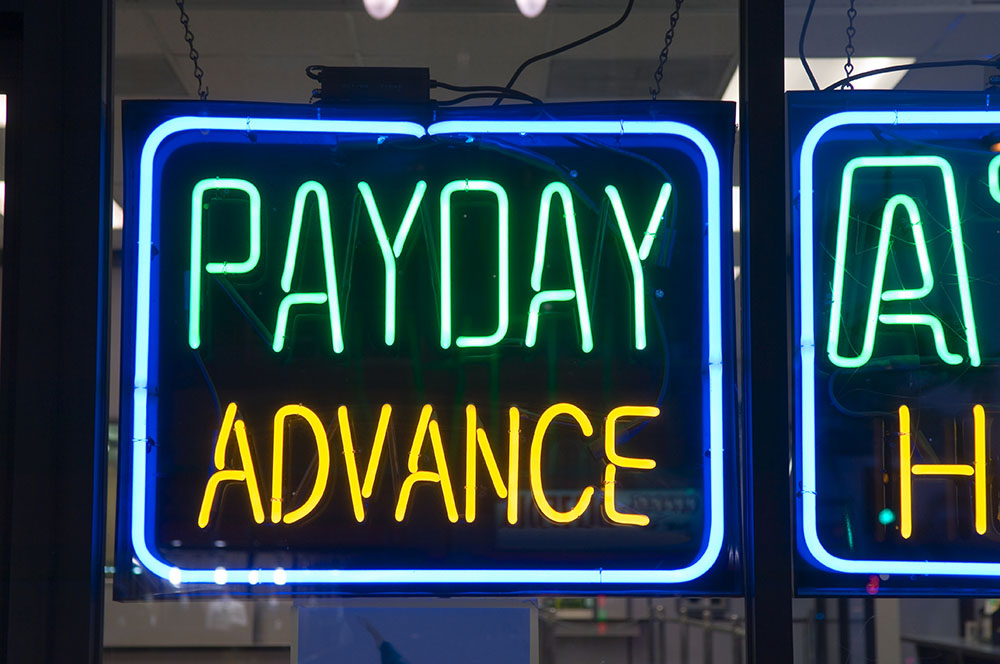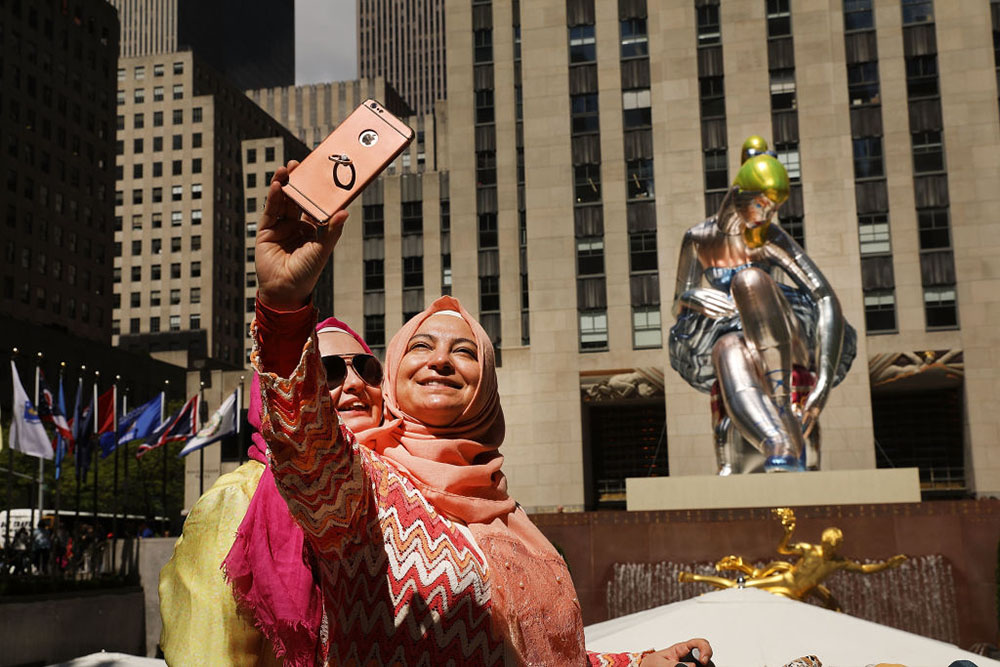As I neared the checkout counter at Belden Jewelers, the sales associate who was helping me asked, “And did you want to pay for this in full or did you want to finance it?”
“Finance it? What do you mean?” I looked at the box in my hand, which held a sterling silver and diamond ring I planned to give my girlfriend for Christmas in a few weeks. She was elsewhere in the mall with our friend Katie; we’d separated so we could buy each other gifts.
The associate explained that I could apply for financing and pay for the ring in installments, which were interest-free for the first 12 months. I had the slightly more than $300 that the ring cost in cash; it was one of the nicest rings in my budget. (All the white gold ones were too much money.) But if I financed it, which I hadn’t even considered as an option, I could afford to spend a little more on my other gifts and even save some for the new year. I could start putting away money for appliances I needed in my apartment or a used car to drive to an off-campus internship.
Get Talk Poverty In Your Inbox
I asked for an application and after a few minutes of processing, I was approved. I had started using my first credit card, a Discover Student card, only a few months prior, and it wasn’t maxed out yet, so I genuinely believed I could make the decision responsibly.
After I left the store, I met back up with my friend Krista, my shopping partner while I looked for my girlfriend’s gifts. “That was the most money I’ve ever spent on Macey,” I said, nervous and excited in equal measure. “I hope she loves it.”
I was too embarrassed to admit I’d opened a store credit card to pay for it; it seemed like something my college friends, who all came from middle-class families, would know better than to do. “Don’t spend money you don’t have” was a wise adage their parents shared when they taught them tips like paying for a car in cash. My dad taught me how to return items to Walmart without a receipt if we were running low on money between paychecks and needed an extra $20 for milk and bread.
A few weeks later, Macey and I spent our first Christmas Day together and I surprised her with the ring during a short, chilly walk. I didn’t tell her that I’d financed the ring or how many hours working in the reading and writing center on campus it would take to pay off. I didn’t say that I’d wanted to get her a white gold ring with a larger karat diamond. She’d also given me her priciest gift to date, a sterling silver replica Time Turner from the Harry Potter franchise I’d been obsessed with for years but couldn’t afford.
Instead, I said that I loved her and wanted to marry her someday, and asked her if she wanted the same thing. We both cried and she said yes, but the reality of ever having enough money to get married eluded even my colorful, wildly hopeful imagination. We both grew up with single parents with underpaying jobs who couldn’t foot the bill for our college education. We would graduate in a year and a half with student loan debt (and me with thousands of dollars in credit card debt just to buy necessities like books, snow boots, and groceries).
The diamond promise ring was an irresponsible romantic lifeline; I was betting on our future. Someday, I would pay off the ring. Someday, we could afford to get married. Someday, I would be able to spend more for white gold, Macey’s favorite. None of that felt true as I went home to my dad’s over winter break to collection notices and service shut off warnings; business was slow for a cab driver during the rise of Uber and Lyft and in the wake of the recession.
It took me about a year and a half to pay off the Belden Jewelers credit card, which I promptly closed. Eventually, I admitted to Macey that I’d taken out a loan to get her ring. She told me that she never wanted me to feel pressured to spend money on her or use a credit card to buy her presents, she just wanted to spend time with me. She told me she’d sometimes felt the same stress: That the cost of her gift reflected how much she loved me, and she worried about spending less on my gifts than I did on hers.
It’s easy to write-off the monetary value of holiday gifts or the importance of deals on Black Friday when you’re financially comfortable. When I was poor, that fact haunted me like an ever-present ghost in my relationships, which felt transactional to me even when my loved ones insisted they weren’t keeping track and were doing me favors out of love. That was easy for them to say, when I noticed it was always me who needed rides to the library to use their free printers or me who carefully calculated the cost of my meals and couldn’t afford to split the check evenly.
This year, Macey and I are celebrating our first holiday season as wives, three months after our wedding. In wedding planning, we were both clear: We wouldn’t let any insecurities or the grim hand of capitalism make us feel like we had to do anything we couldn’t or didn’t want to afford, and we didn’t go into debt to pay for any of it. Even if it meant we had to answer questions about why our reception was buffet style or why we didn’t have an open bar.
She and I are now the kind of financially comfortable I could only dream about my entire childhood, meaning we don’t have enough money to own a home and we still have mountains of student debt, but we pay all our bills on time each month and we can even afford to travel if we plan well. But as November crept closer, I still felt the pressure surrounding me just like it had when we were spending our first Christmas together. Didn’t my gifts have to be epic?
One day while Macey was at work (she commutes and I work from home), I sent her a text: What if we did a lowkey Christmas this year, just one gift and one book? We could save money to travel in 2020 and there are no physical gifts I really want.
It is an incredibly privileged position to be in, and I know that. When you have enough of a financial cushion to go on nice dates when one person gets promoted or to buy a new bookshelf as soon as you need it, holidays don’t have to be about prioritizing everything you need for the entire year. Macey and I got a lot of the home goods on our list this year between our wedding presents and a sponsored article I wrote for Bed Bath & Beyond that came with a couple thousand dollars worth of free store merchandise. We’re at a point where we have more than we can comfortably fit in our one-bedroom apartment.
But back when we were both poor or broke, Christmas could be the only time of year when we actually got big ticket items we needed, or pricey experience gifts like a couples’ massage. I once waited months to get a new purse in the hopes that Macey might get it for me in December, and another year, my Christmas gift from my dad was a fancy date for the two of us. We ate sushi at a restaurant with three dollar signs on Google, played games at Dave & Busters, and took professional photos together.
Macey texted back: That sounds good. It was harder than I expected to fight the urge to shower her with multiple expensive gifts after promising not to, especially when I came across a $1,500 moon necklace on Instagram (that I absolutely can’t afford but I know she’d love).
Our stockings this year will be filled with the promise of a two-week honeymoon in 2020 and love letters to each other. Capitalism tells me that isn’t enough, but I’m not listening.











